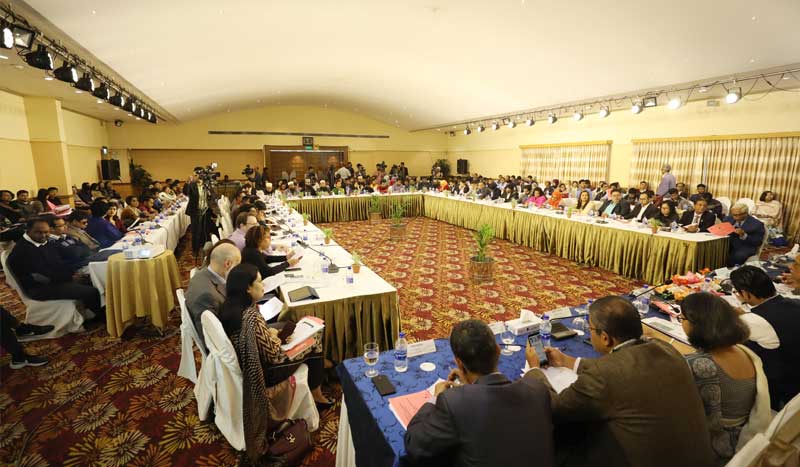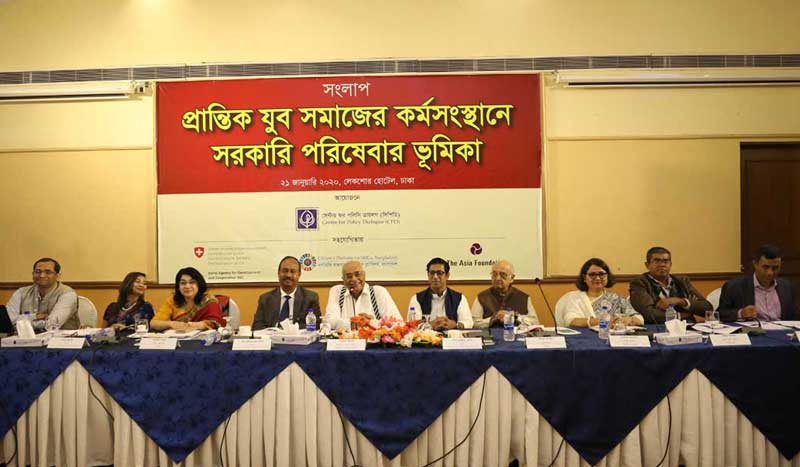
Download: Paper | Presentation
The government has various schemes and projects to create skill development and employment opportunities for the youth cohort of the country. But the public services, aimed for creating employment opportunities for the youth, are not being effective enough to meet the country’s long term employment target – 30 million jobs by 2030, due to the lack of coordination among various government agencies.
https://www.facebook.com/cpd.org.bd/videos/154446285978476/
Moreover, lack of access to information and inadequate visibility of various public services are undermining government’s effort for youth employment. The government should focus on ensuring quality education and appropriate skills creating employment and entrepreneurial opportunities for country’s young generation, especially for the marginalised youth. If the country is to remain on track to achieve the Sustainable Development Goals (SDGs) by 2030, it has become a must to bring in effective coordination and accessibility to information in its operations, particularly, in public service delivery.
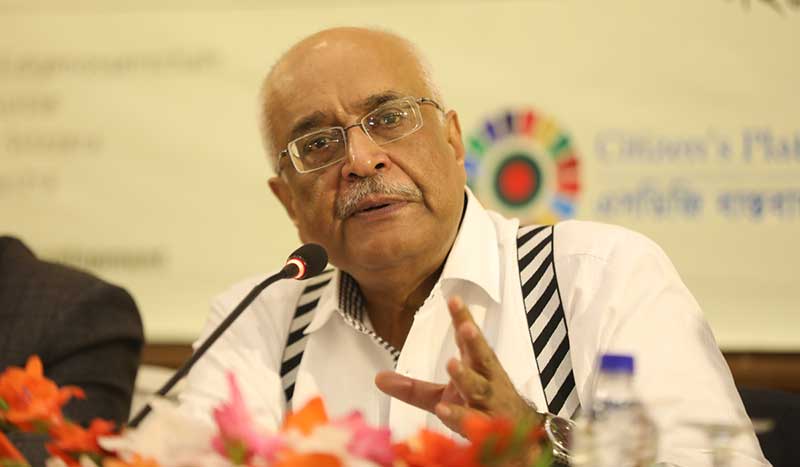
Youth representatives and development experts shared these recommendations at a dialogue on “Youth Employment and Effectiveness of Public Services” on 21 January 2020 in Dhaka. The dialogue was organised by the Centre for Policy Dialogue (CPD) in association with the Swiss Agency for Development and Cooperation (SDC), The Asia Foundation-Bangladesh and Citizen’s Platform for SDGs, Bangladesh. The event was chaired by Dr Debapriya Bhattacharya, Distinguished Fellow, CPD, and Convenor of Citizen’s Platform for SDGs, Bangladesh.
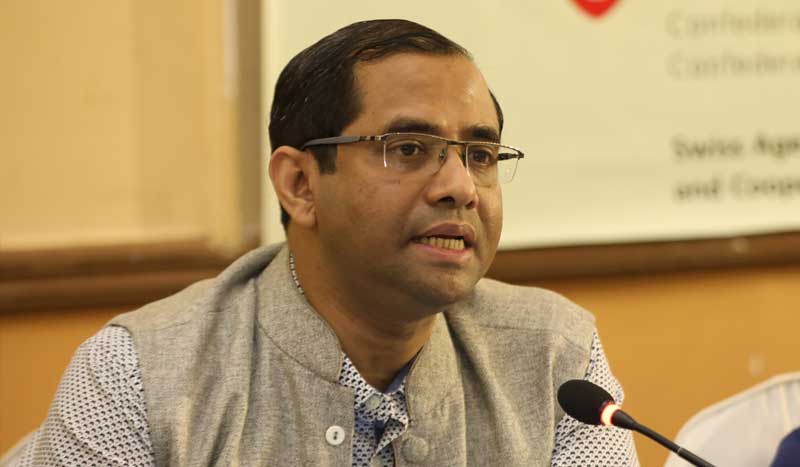
Dr Khondaker Golam Moazzem, Research Director, CPD, presented the keynote at the dialogue. In his presentation Dr Moazzem shared research findings on the state and challenges of public service delivery in four areas – livelihood, education, training and employment – from the perspectives of marginalised youth. The research specifically focused on whether the public services delivered are effective enough to address these challenges. The study was carried out by conducting sample surveys and consultation workshops with four marginalised youth groups – university students at outside the capital, Dalit and indigenous community, students at madrasah stream and youth living in slums.
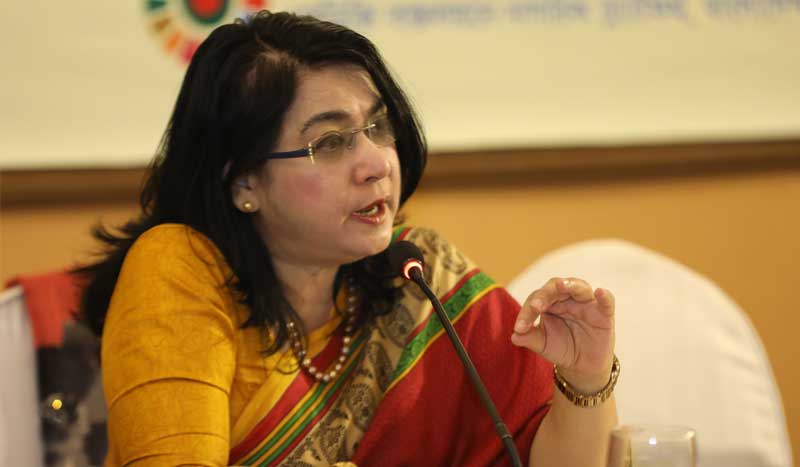
Livelihood related challenges are the first barrier to enter the job market. It affects aspiration and access to education and employment of the marginalised youth. At least 7 per cent slum dwelling youths have experienced eviction from their living places. Marginalised youths are deprived of access to tertiary education at college or above. The quality of local academic institutes and training centers is 50 per cent compared to the national level.
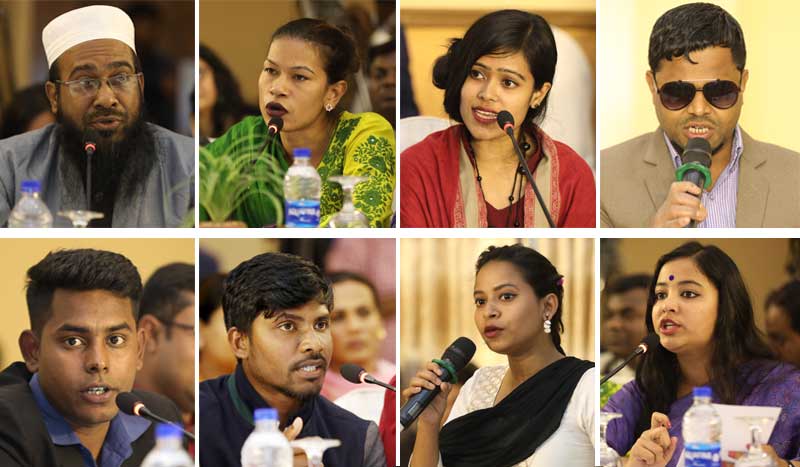
Dr Moazzem stated that the public services for youth employment are not well-targeted to address major livelihood challenges and those are sometimes regressive in nature. A right-based approach is needed instead of considering market-based approach. In this context, draft of ‘anti-discrimination law’ should be ratified by the government and need to meet the livelihood demands of the marginalised. In view of various weaknesses in public service delivery, GO-NGO collaboration is found to be effective in terms of ensuring better access to information and different services regarding education, training, and employment.
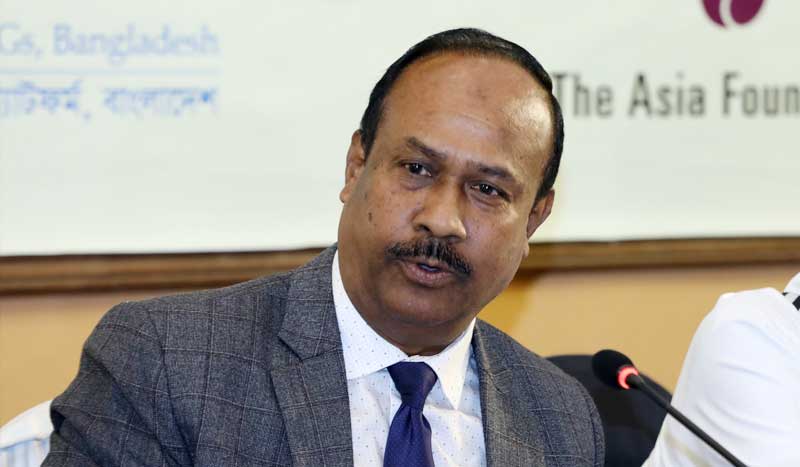
Mr Md. Mujibul Haque, MP, Chairman of Parliamentary Standing Committee on Ministry of Labour and Employment, as a Special Guest, said that the lack of coordination among ministries and various government departments has been a crucial challenge for the government for smooth delivery of its national development plans. It is time for the country to go beyond the complex bureaucracies for creating skilled labour force and business environment for private sector to create adequate employment opportunities.
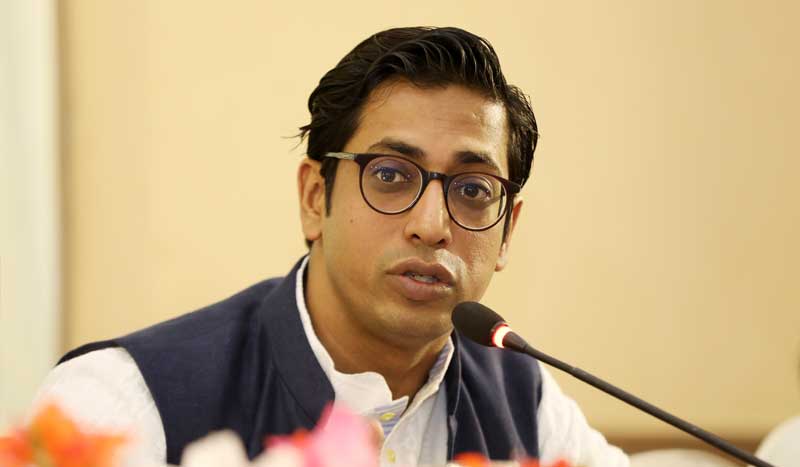
Mr Nahim Razzaq, MP, Member of Standing Committee on Ministry of Foreign Affairs, spoke as a Special Guest at the event. He said that the government is very keen to meet the aspirations of the youth cohort of the country. Policymakers should now take into consideration the effective use of technology to improve the skills and employability of the youth.
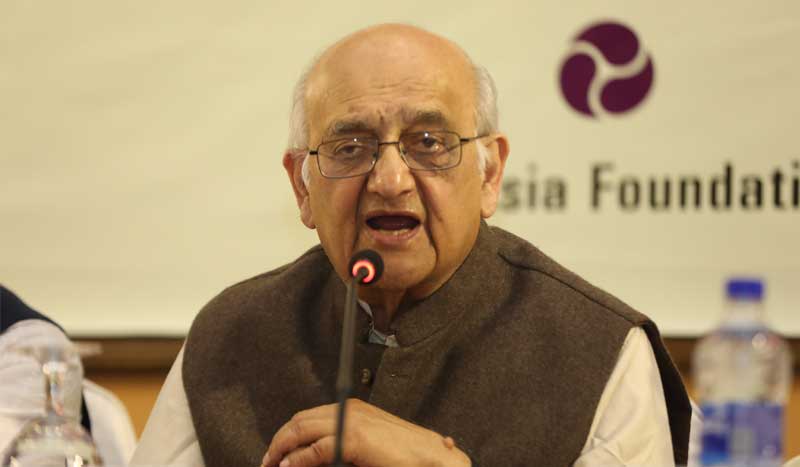
Professor Rehman Sobhan, Chairman, CPD, as the Guest of Honour, said that the issues of quality education, skills development and job creation for the youth should not be fallen into trap of political biases. The government should have a comprehensive strategy to utilize the potentials of countries labour force.

Mr A.K.M Fahim Mashroor, Chief Executive Officer and Co-Founder of bdjobs.com, Ms Sarah Kamal, President, Junior Chamber International (JCI) Bangladesh, Mr Md Babul Akhter, Former Secretary General of IndustriAll Bangladesh Council, and Ms Tahsinah Ahmed, Executive Director of UCEP Bangladesh, shared their views as Discussants at the event. Dr Fahmida Khatun, Executive Director, CPD, delivered welcome remarks at the beginning of the event.
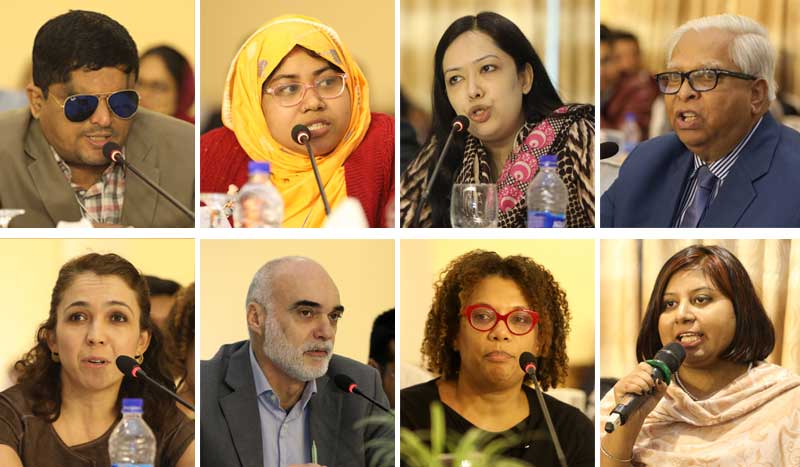
The event was participated by more than 200 representatives from youth communities from across the country, development experts, researchers, international development partners, business leaders, political leaders, students and media professionals among others.
